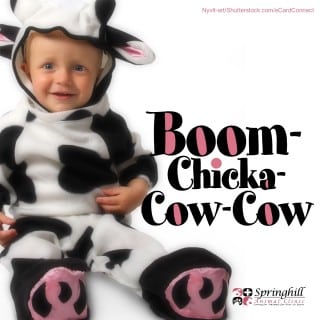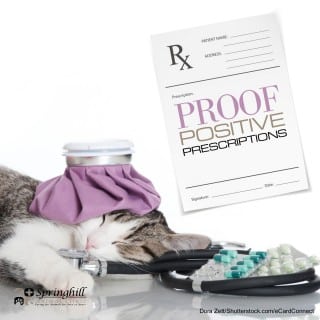Hey, everyone! It’s Cooper, here to discuss a very important topic: National Poison Prevention Week.
It’s hard for me to admit this, but here goes: We dogs have a few bad habits…and one of them is that we will eat pretty much anything. Of course, that doesn’t mean that we SHOULD eat anything we want, because not everything is good for us! In fact, many common household items can actually harm us…or even kill us (ooh, I don’t want to think about that!)
And my cat comrades are not off the hook. I’ve seen them sample some stuff that even I wouldn’t sniff. So, basically, we pets aren’t perfect. We may be intelligent, but try to think of us as small children. Sadly, we just can’t be trusted not to put something in our mouths that doesn’t belong there.
So, during this very important week, I’m going to remind you of some of the most common pet toxins that may be around your home. Doc wants me to warn you that this is not a comprehensive list. If you ever suspect that something is unsafe for your pet, it’s best to keep it locked up where she can’t get to it. Better to be safe than sorry!
Foods. Yeah, I know. We always want your food. It’s not that we don’t love the pet food you give us; we just love ALL food. But you should know that lots of human foods can make your pet sick or even be lethal. The worst offenders are chocolate, coffee (any caffeine, really), alcohol, grapes and raisins, onions and garlic, yeast dough, and macadamia nuts. If you’re unsure whether your pet can enjoy a certain treat from your table, just don’t give it to her. Give her one of her pet treats instead.
Medications. It should be no surprise that human medications are unfit for animal consumption. Our bodies just work differently than yours, plus we are a lot smaller than you, so a normal dose for you can be deadly to us. Dogs and cats are both naturally curious creatures, so be sure all of your medications are locked away. (Remember, we are like small children—except our teeth can get past a childproof cap!) Painkillers like acetaminophen (Tylenol) or NSAIDs (Advil, Motrin, Aleve, aspirin) can be very dangerous to us. Antidepressants and vitamin supplements are other common culprits.
Note: If Doc tells you it’s OK to give us a human medication, then that’s fine—but be sure to follow the directions given to you regarding dosage and frequency.
Plants. Oh, man. This is a tough one. Plants are just so tempting! My cat friends especially think so. Sadly, lots of household plants are toxic to pets. Some may only give us an upset stomach, while others can be more dangerous. Fortunately, the ASPCA has a huge list of toxic AND non-toxic plants on their website (www.ASPCA.org). You can even sort it by pet type to see which plants can be safe in your home. Some toxic plants may be OK to have indoors, as long as it’s out of reach of your pet–but this may be tricky for those curious kitties (and some of us pups!) who love to climb. And some plants, like lilies, are dangerous even by being in the same room as your pet. So do your research before bringing a plant into your home.
Household chemicals. Your home is probably filled with all sorts of yucky stuff that, for some reason, we pets think are just delicious! Fertilizers, pesticides, rodent killers, antifreeze and other automotive fluids, glue, and any cleaning product should all be kept out of reach. When you’re using these products, make sure we’re out of the room, and don’t leave something soaking that we could get to. (This includes toilets with cleaning solution in them. Now, I have better manners, but some dogs actually like to drink out of there. Keep the lid shut and set yourself a timer so you can remember to finish the job.) With aerosol products, don’t spray them around our food or water, and never spray them around pet enclosures like birdcages and aquariums.
Well, there you have it—the most common household pet toxins. I know it seems like a lot, but I promise you it’s not as overwhelming of a list as you might think. Just use your common sense. If it seems like it may be harmful to you or your child, it’s probably harmful to your pet as well. But don’t assume that just because you can eat it, we can, too. You can always search online to see if a food or plant is safe for your pet.
If you think your pet has eaten something unsafe, you can call the ASPCA’s poison helpline at (888) 426-4435. It’s available 24/7, 365 days a year.
And, of course, you can stop by or give us a call anytime you have a question about your pet’s health. That’s it from me today. Keep your pets safe!



